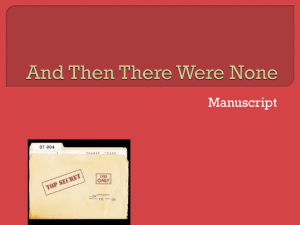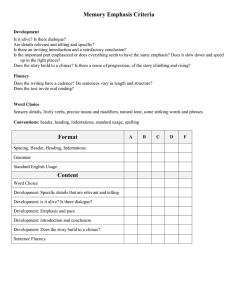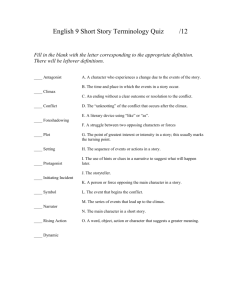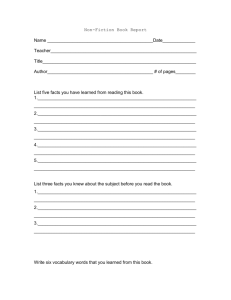LITERARY TERMS
advertisement
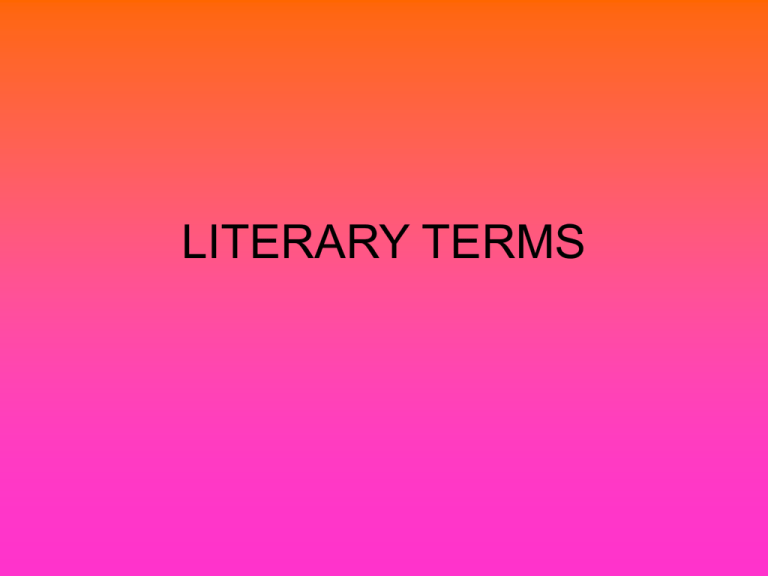
LITERARY TERMS PLOT • Exposition – the beginning of the story where the characters and setting are introduced • Rising Action – the bulk of the story (where most events take place) events leading up to the climax • Climax – The turning point of the story. If this event did NOT happen, we would NOT have an interesting story. PLOT Continued • Falling Action – the events that come directly after the climax • Denouement/Resolution – the last part of a story; this is where all conflict is resolved. It is usually only the last or last TWO events in a story. THEME • A truth about life or people that we discover as we share the characters’ experiences • EX – don’t judge a book by its cover, power of words, quest for power, etc Symbol • Persons, places, or things that function as themselves but also stand for larger ideas. • EX – Harry Potter: phoenix; The Hunger Games: mockingjay Motif • Common features in a piece of literature • EX – The Hunger Games: fire; Harry Potter: darkness point of view – who’s telling the story • 1st person – someone in the story is telling the story (uses I/me/we/us) • 3rd person – someone who is NOT in the story is telling the story (uses he/she/them) Main Idea • Most important information showing the overall understanding Motivation of character • “Why does the character do _______?” • EX – why does Katniss volunteer for the hunger games? Summarize • Telling the most important information in a text or piece of literature • EX – summarize Frozen Foreshadowing • Clues hinting at what will happen next • Can you think of your own example? Irony • Convey (or show) a meaning that is opposite of the literal meaning. Tone • The feeling the AUTHOR presents with his/her words • EX – solemn, sad, enthusiastic, sarcasm Mood • The feeling that YOU, THE READER, gets after reading • EX – Are you happy? Anxious? • CONFUSED IS NOT A MOOD Simile • Comparison using ‘like’ or ‘as’ • EX - You are as beautiful as a sunset. Metaphor • Comparison not using ‘like’ or ‘as’ • EX – Your eyes are the ocean. Suspense • Makes listeners wonder what will happen next (Anxious, curious, scared) • Suspense can occur in stories that are not scary. Anachronism • When a person, thing, or idea from a different historical period is used in a story • Can you think of any on your own? Allusion • Making a reference to another person, place, event or literary work. Inference • Educated guessed based on information you already have. • EX - If someone has a Lamborghini or a Porsche, you might make an inference that they have a lot of money. Flashback • When the narrator goes back to an earlier time to tell a story that relates to the main story.
